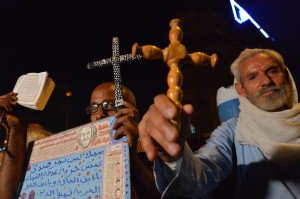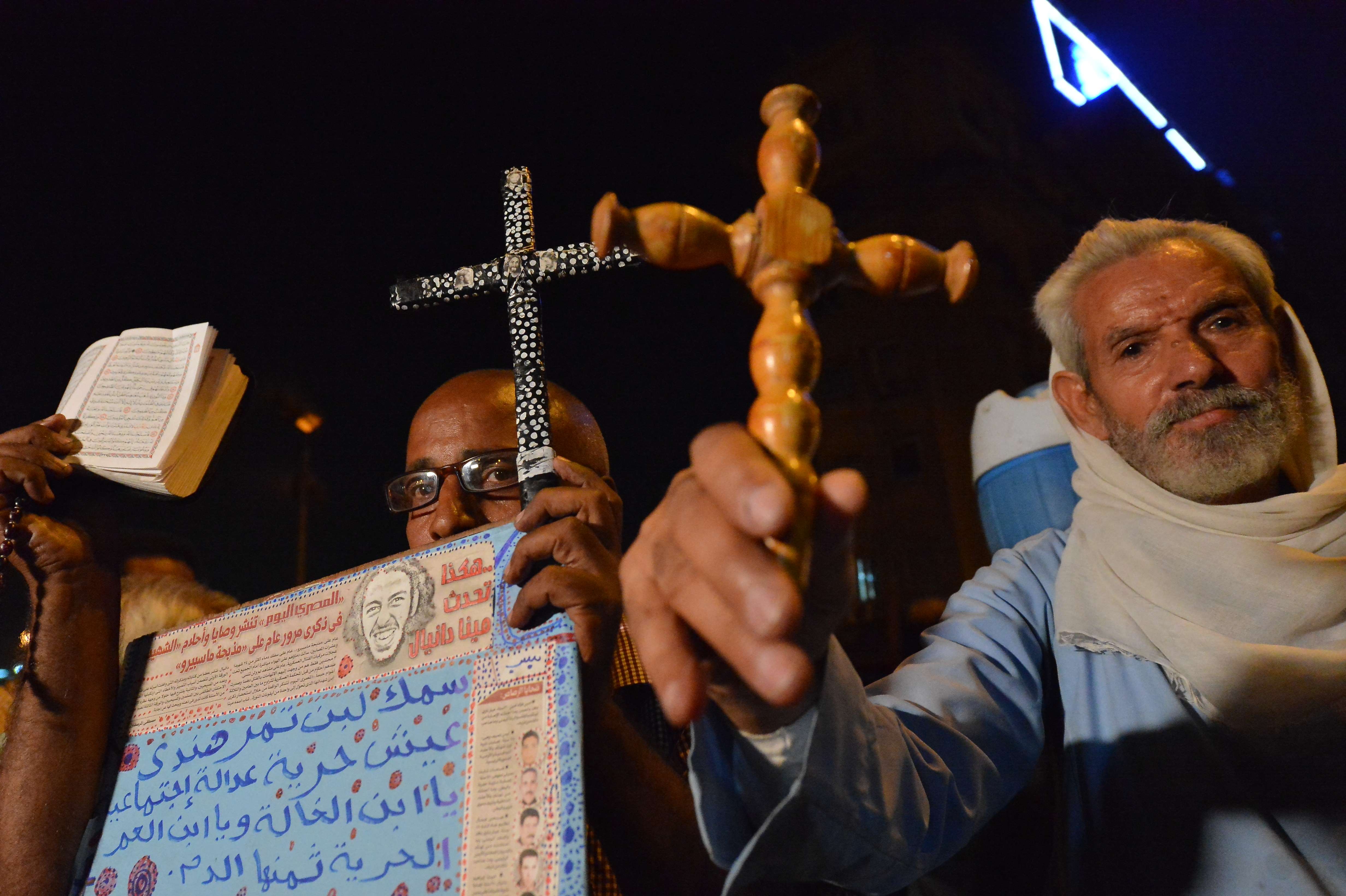
(AFP FILE PHOTO/KHALED DESOUKI)
A village in Beni Suef has witnessed religious conflict over the past week, following the alleged insulting of Islam by a Coptic man on Facebook, allegations denied by the accused.
Ayman Youssef Tawfiq, from the village of Kafr Darwish in Al-Fashn, around 100km south of Cairo, was accused of posting cartoons that are offensive to the Prophet Mohamed online. In what followed, Coptic homes in the village were allegedly attacked with rocks and Molotov cocktails, leading to numerous fires in houses and the destruction of a car.
After days of conflict, meetings were held in the village, but the outcome was the forcible displacement of Youssef and four of his relatives’ families. Despite the meeting, a further 10 homes were reported by Coptic sources as having been burned in ongoing attacks.
According to the Coptic newspaper, Al-Watani, a number of Muslim youths from the area helped the Copts defend their homes against the assailants, and the police attempted to contain the incident swiftly.
“Ayman is an illiterate person who usually lives in Jordan who was accused of sharing the picture by locals at his village in Beni Suef when he returned. At first, a case was filed against him and the people in the village wanted to charge him with a fine. They later changed their minds and decided they wanted him to leave,” Ishak Ibrahim, a researcher on religion at the Egyptian Initiative for Personal Rights (EIPR) told Daily News Egypt. “Ayman has three brothers, each with a family, and elderly parents in their 70s and 80s living in the village. All of them were made to leave the village.”
According to Ibrahim, the decision to expel the families was made with the authorisation of the authorities in the area.
“There were two meetings, one at a police station and the second in the Mayor’s house, attended by local Christians and Muslims,” he said.
As mayors are picked by and work closely with the interior ministry, Ibrahim believes that the ministry was quietly supportive of the decision, but after much media attention, suspended the mayor. According to Al-Watani, Mayor Ahmed Maher told the families that the police could not guarantee their safety if they decided to stay in the village.
“The violations of people who express their religious opinions and the persecution of minorities is ongoing in Egypt. It increases when individuals are accused of insulting religion, as usually the trials in these cases are not fair,” Ibrahim said. “The charges for insulting religion are very vague and do not define which acts can be considered insulting or not. For instance if an imam said that all Christians are kuffar [apostates], would this be considered insulting? Anyone who openly calls for violence and hatred should be the only ones charged.”
Most reported cases of individuals charged with insulting religion are among Christians and atheists. This May, four Egyptian teenagers and their teacher were detained and charged with insulting religion for offending Islam, in a video in which they mock militant group “Islamic State”.
Daily News Egypt also reported on the case of Beshoy Armia in May, a convert to Christianity, who has been interned since 2013, most latterly for insulting Islam, in what his lawyer says is ongoing political and religious persecution.

